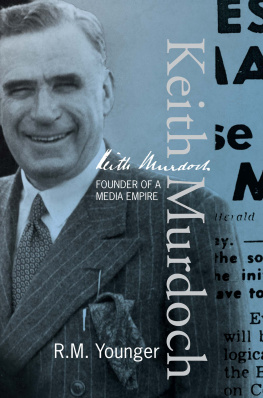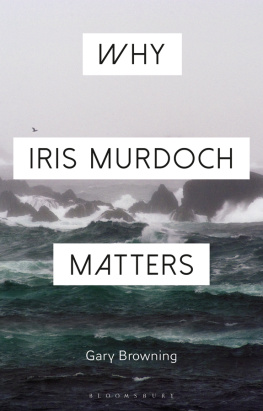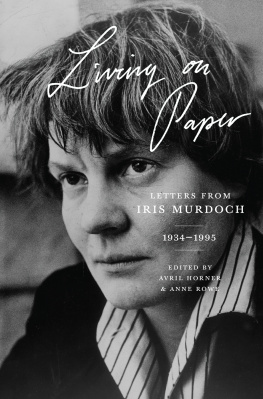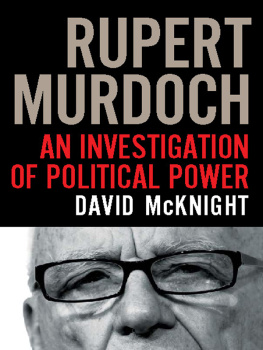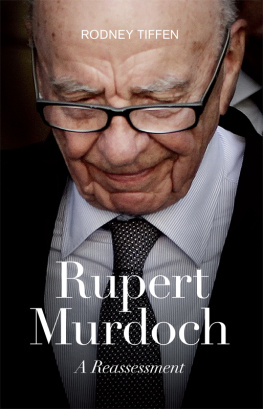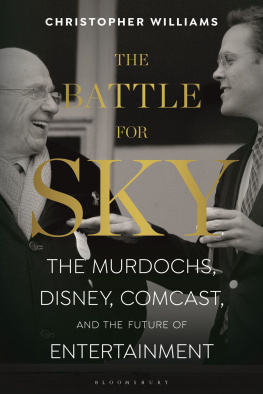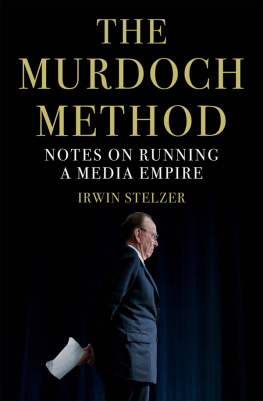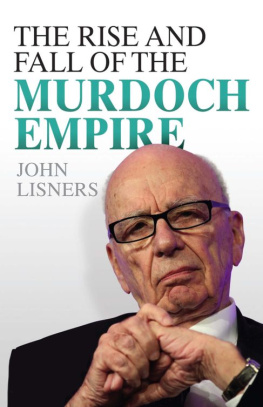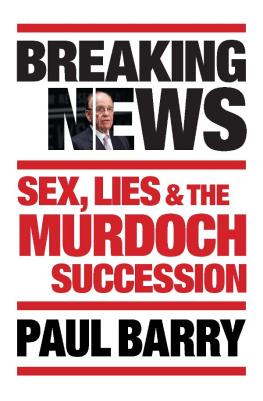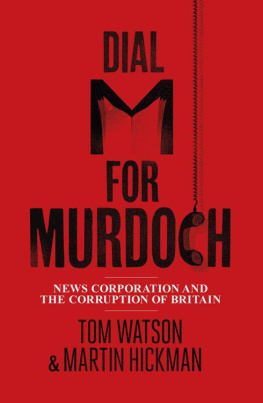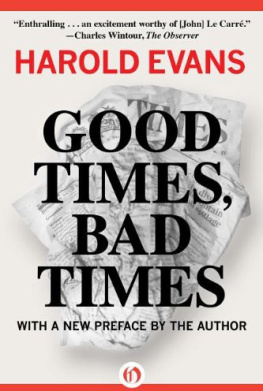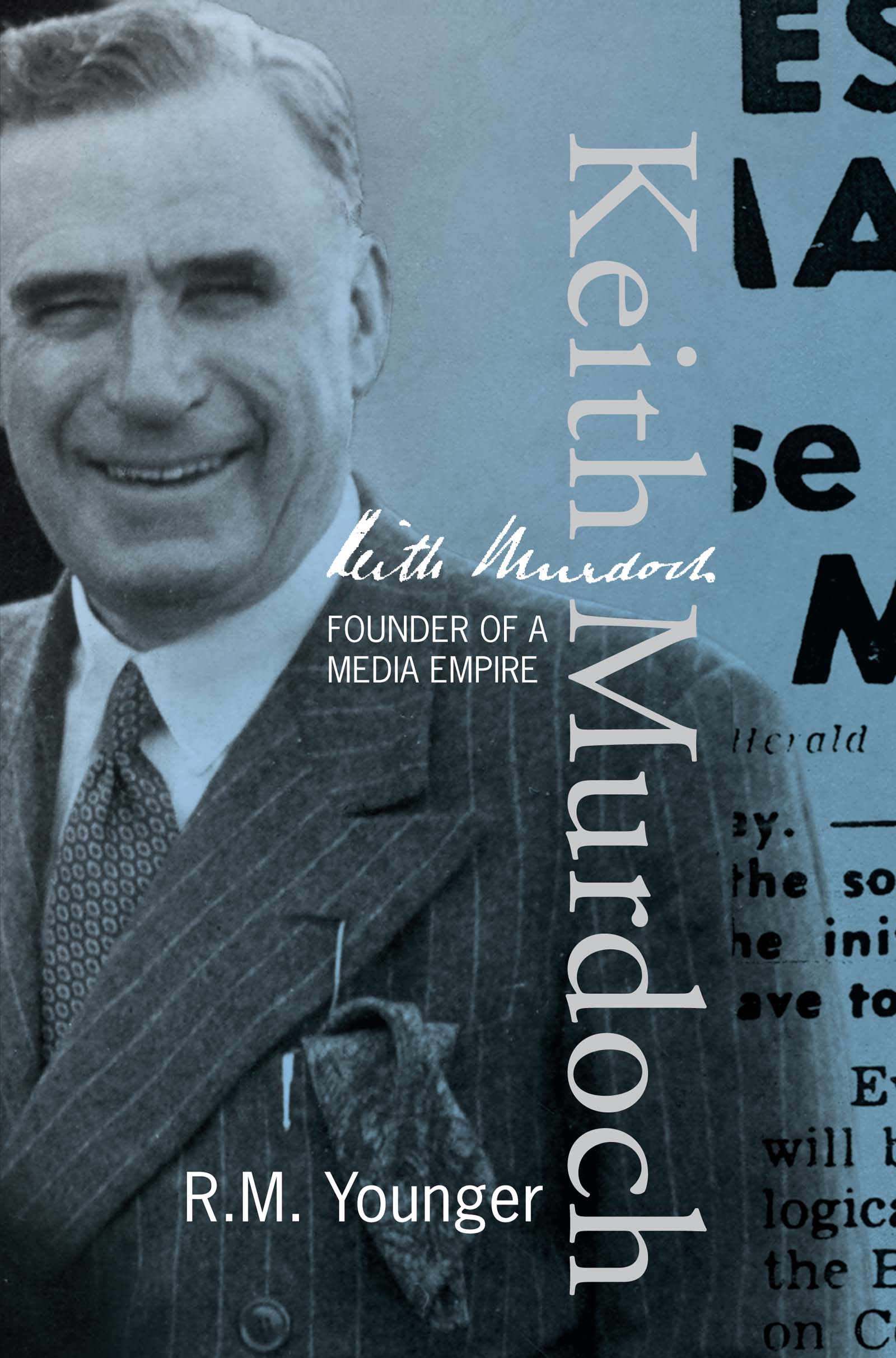Contents
Guide
Contents
To Michelle and all who bring honour
to the profession of journalism
I tell you, sirs, that it is virtue that lasts; that begets real friendships and maintains them. Lay then, while you are young, the foundations of a virtuous life.
Marcus Tullius Cicero, Concerning Friendship
No one can be a great thinker who does not follow his intellect to whatever conclusion it may lead.
John Stuart Mill, On Liberty
To find the best compromise between individuals and the State is one of the most difficult and complicated questions in the art of government... I believe that the ideal to be kept in view may be conveyed in these words: the greatest dissemination of power consistent with efficiency; but the greatest possible centralisation of information and the diffusion of it from the centre.
John Stuart Mill, On Liberty
I cannot imagine public opinion surviving as a powerful force in the government of any State which has not incorporated, within the very design of its living, a free press to present a daily history of the world.
Keith Murdoch, 1952
Fifty years after Sir Keith Murdochs death his career and ongoing influence remain the measure of the man who for almost half a century played a major role in Australias story through his many and varied fields of achievement. He had a continuing influence in the development of national policies during the stewardship of ten prime ministers: Fisher, Hughes, Bruce, Scullin, Lyons, Menzies, Fadden, Curtin, Forde and Chifley.
The significance of Sir Keith Murdochs sustained contribution to the Australian spirit over four decades of his life was the central theme of tributes paid by leading citizens at the opening of the Keith Murdoch Gallery in the State Library of Victoria in June 2001.
In an address revisiting the Murdoch achievements, Sir Ninian Stephen, a former governor-general, told of the many ways in which Sir Keith had consistently advanced the cause of Australias self-respect Australianism, as Murdoch himself identified it in 1908 and in doing so had strengthened the countrys belief in itself as a progressive and distinctive nation. Describing Sir Keith as the towering figure of the Australian media of his day, Sir Ninian added: It is a happy coincidence that we celebrate the name of Sir Keith Murdoch in this centenary year of Federation and this because, although very much a possessor of Scottish virtues, Sir Keith did perhaps more than anyone else to engender and reflect within our Federation a deeply held love of Australia and of things Australian.
Speaking on behalf of the Murdoch family at the gallery opening, Janet Calvert-Jones remembered her father as an inspiration, giving his children a love for, and an interest in, art and the written word, and in the value of helping others. Within the Murdoch family, she said, these qualities had been translated into support for the creation of the Keith Murdoch Gallery. She paid tribute to her brother Rupert, whose success and generosity has made it possible for us to follow our fathers philanthropic path, admirably led by our mother.
Sam Lipski, a noted journalist and chief executive of the philanthropic Pratt Foundation, speaking as president of the Library Board of Victoria, said that, while he never knew it, Keith Murdoch was very much responsible for turning my attention to journalism. It was during World War II and in the years that followed immediately after that Keith Murdoch made The Herald into an important newspaper: he understood that it was essential for Australian journalists to report the world through Australian eyes for Australian readers, Lipski said. Growing up in an immigrant family from Europe, we wanted to know what world events meant to us and our families. Even as a child I remember the reports of journalists such as [The Herald special correspondent] Douglas Brass who covered so many of the big events in the postwar world. It was then that I decided that was what I wanted to do travel the world and tell Australians what it meant.
Extending beyond Keith Murdochs importance in the creative fields of newspapers, magazines and radio services, another sphere of noteworthy achievement lay in the advancement of cultural activity, notably his support for library services and the visual arts. In October 2001 this aspect of his life was receiving attention. Explaining Keith Murdochs strong links with the development of information sources and their greater use within the community, Rupert Murdoch, in the inaugural Keith Murdoch Memorial Oration, entitled The Human Wealth of Nations, said it was an honour to have his fathers name attached to such a crucial and beloved institution as the State Library of Victoria (of which Sir Keith was board chairman from 1939 to 1952) and to renew the association of the library and the Murdoch family. Information had become the worlds most valuable currency, making the role of public libraries more vital today than ever before, he said, adding:
Keith Murdoch had several principles in common with the State Library of Victoria and with Public Libraries across the nation, principles that are fundamental to any modern democracy. Dedication to the cause of knowledge and its fair distribution. A faith in the permanent value of the written word, and a determination to provide each and every curious citizen with access to the information that empowers us all...
Extending these aims and values from his fathers time into the twenty-first century, Rupert Murdoch said that with the new millennium we must learn to consider the value of people to be concrete value, the true wealth of nations... We must learn to protect and increase Australias share of human capital as carefully, and as ambitiously, as we would financial capital... We must begin as everything begins by teaching our children well, by making Australians smarter and our country stronger.
This philosophy was central to Keith Murdochs long career in the news and information fields in which he advanced the nations causes and individual Australians welfare by his encouragement of, and support for, the spread of knowledge. From the early 1920s KM as he was known to his contemporaries had fostered a new style of journalism aimed at informing and engaging the widest possible public by making sure his newspapers were lively and readable. The spirit of competition for the attention of newspaper readers, actual or potential, was a drawing force, but the urge to create a better newspaper for its own sake was also present. In that sense he relied on the belief that success came as a reward for finding a need and meeting it an objective perhaps more elusive in the case of newspapers than in any other sphere because readers expectations also needed to be constantly satisfied by fresh and innovative ideas and interpretation as well as by compelling coverage of what happened each day. Triumph involved another dimension of thinking: a breadth of vision that projected from the known and tried experience into the unknown, to which creativity was the only bridge.
In advance of the Age of Technology that would revolutionise the individuals access to information sources, for three decades from the time he became editor-in-chief of The Herald in 1921, he employed forward-thinking and prescient interpreters of the Australian scene while he himself showed enormous energy in the hour-to-hour specifics of directing the affairs of two of the most dynamic newspapers of the time.
Next page
